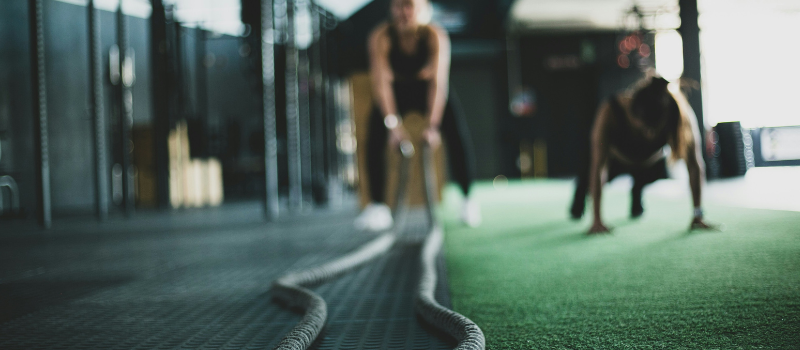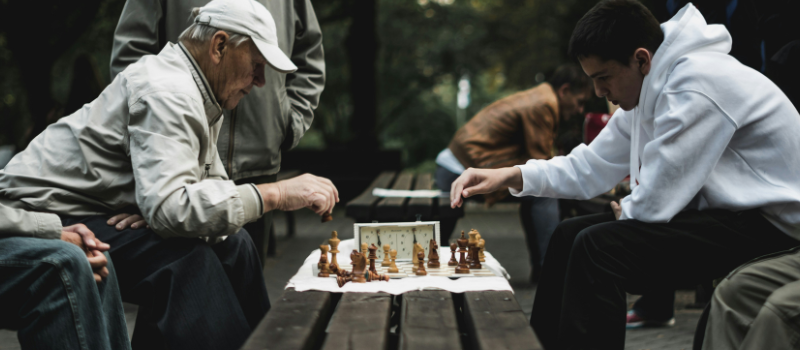You've probably practiced things for thousands of hours without getting much better.
Guitar for a decade but still playing the same basic chords. Years of jogging without improving your time. Countless hours of cooking without mastering anything beyond spaghetti (guilty). You show up, you put in the time, but you're stuck on a plateau that feels suspiciously permanent.
Here’s the truth, though: Practice doesn't make perfect. It just makes permanent.
If you practice bad technique for 10,000 hours, congratulations — you're now an expert at doing it wrong. Regular practice reinforces whatever you're already doing, whether that's good form or terrible habits disguised as muscle memory.
Deliberate practice is different. It's the scientifically-backed method that separates the world-class performers from the eternally mediocre. It's why some people master skills in months while others spin their wheels for years.
This isn't about talent, genetics, or some mystical gift. It's about working smarter instead of just working harder.
What Is Deliberate Practice?

Deliberate practice is a specific type of focused, goal-oriented practice designed to systematically improve performance through targeted feedback and progressive difficulty.
Notice what's missing from that definition: "doing what you enjoy," "playing to your strengths," or "staying in your comfort zone."
That's because deliberate practice is fundamentally uncomfortable. It requires pushing beyond your current ability, identifying weaknesses, and deliberately working on the parts you're worst at. Not the fun parts. Not the easy parts. The parts that make you want to quit.
The concept was developed by psychologist K. Anders Ericsson, who spent decades studying expert performance across domains like music, chess, sports, and medicine. His research consistently showed that elite performers don't just practice more — they practice differently.
Regular Practice vs. Deliberate Practice
Here's the difference between mindless repetition and deliberate practice:
Regular Practice:
- Playing songs you already know on guitar
- Running the same route at the same comfortable pace
- Cooking familiar recipes that always turn out fine
- Practicing basketball shots from your favorite spot
- Going through the motions with minimal mental effort
Deliberate Practice:
- Working on specific chord transitions you consistently mess up
- Running intervals that push you past your lactate threshold
- Attempting complex techniques that fail repeatedly until they don't
- Shooting from positions where your accuracy drops
- Pushing beyond what feels automatic and comfortable
Regular practice maintains your current skill level. Deliberate practice systematically improves it.
The Science Behind Deliberate Practice
Your brain builds skills through neuroplasticity — the ability to form new neural connections and strengthen existing ones through repeated use. However, your brain only rewires itself when it's forced to adapt to new challenges.
When you do something you've already mastered, your brain operates on autopilot. The neural pathways are already established, so no adaptation occurs. You're just maintaining existing connections, not building new ones.
Deliberate practice works by consistently pushing you into what psychologists call the "zone of proximal development.” It’s that sweet spot just beyond your current ability where you struggle but can succeed with effort. This struggle triggers neuroplastic changes that expand your capabilities.
Research shows that the quality of practice matters far more than quantity. A study comparing violinists found that the best performers didn't practice more total hours — they practiced more deliberately, with focused attention on specific weaknesses rather than just playing through pieces.
Your brain literally can't improve what it doesn't struggle with. Unfortunately, comfort is the enemy of growth.
The 5 Components of Deliberate Practice

Deliberate practice has specific, identifiable components that separate it from ordinary practice.
1. Specific Goals
You need clear, measurable targets for each practice session. Not "get better at guitar" but "cleanly transition from G to C chord within one second." Not "improve my writing" but "write three strong opening hooks using the problem-agitate-solve framework."
Vague goals produce vague results. Specific goals create accountability and progress markers.
2. Focused Attention
Deliberate practice requires complete concentration on the task. You're not practicing while watching TV, chatting with friends, or letting your mind wander. Every repetition demands full mental engagement.
This is why deliberate practice is exhausting. Most people can only sustain it for 1-4 hours per day before mental fatigue sets in. Elite performers practice with an intensity that makes longer sessions physically impossible.
3. Immediate Feedback
You need to know what's working and what isn't, preferably in real-time. This often requires a coach, teacher, or expert who can identify errors you can't see yourself. But it can also come from objective metrics, video analysis, or structured self-assessment.
Without feedback, you're just reinforcing whatever you're already doing. With feedback, you can correct mistakes before they become habits.
4. Progressive Difficulty
The work has to stay just beyond your current ability level. As soon as something becomes comfortable, you need to increase the difficulty. This means constantly adjusting your practice to target your evolving weaknesses.
It’s a lot like progressive overload in strength training. You don't keep lifting the same weight forever — you gradually increase resistance to force adaptation.
5. Deliberate Discomfort
Deliberate practice feels hard because it is hard. You're working at the edge of your ability, making mistakes, failing, correcting, and trying again. If practice feels easy and enjoyable, you're probably not improving much (which means you’re not doing it right).
How to Use Deliberate Practice (Step-by-Step)
Understanding deliberate practice is useless without implementation. Here's how to actually make it happen (the right way):
1. Identify Your Specific Weakness
Don't practice your entire skill broadly. Identify the precise component where you're weakest. If you're learning piano, maybe it's your left-hand coordination. If you're improving public speaking, maybe it's your tendency to use filler words under pressure.
Be ruthlessly specific. "I need to get better at basketball" is too broad. "I miss 60% of free throws when tired" is specific enough to work with.
2. Design a Targeted Exercise
Create a practice activity that isolates this weakness. Remove all other variables and focus exclusively on the problem area.
For the basketball example: shoot 100 free throws after running sprints to simulate game fatigue. Track your percentage. This targets the specific weakness instead of just playing pickup games where you might avoid free throws entirely.
3. Get Quality Feedback
Find someone who can identify errors you can't see. This might be a coach, teacher, or peer who's further along than you. Alternatively, record yourself and review objectively, or use measurable metrics that don't lie.
The feedback needs to be immediate (or as close as possible) and actionable. "That was good" doesn't help. "You're dropping your elbow on the follow-through" does.
4. Practice With Full Concentration
Block off time specifically for deliberate practice. Turn off distractions. Set a timer for focused work (usually 25-90 minutes depending on the skill and your experience level).
During this time, every single repetition matters. You're actively analyzing each attempt, adjusting based on feedback, and consciously trying to improve.
5. Push Beyond Comfort
If you're not failing regularly, you're not pushing hard enough. Aim for a difficulty level where you succeed roughly 70-80% of the time. High enough to see progress but low enough that you're constantly challenged.
When something becomes comfortable, immediately increase the difficulty. Add complexity, increase speed, remove assistance, or find a harder variation.
6. Take Strategic Breaks
Your brain needs recovery time to consolidate learning. Schedule deliberate practice sessions with adequate rest between them. Most experts recommend 4-6 hour gaps between intense practice sessions.
Research shows that skill consolidation happens during sleep, so practicing right before bed can enhance retention.
7. Track Progress Objectively
Measure improvement through data, not feelings. Your subjective sense of progress is often wrong. Use metrics like accuracy rates, completion times, error frequency, or expert assessments.
Review your progress weekly. If you're not improving, your practice isn't deliberate enough. Adjust your approach.
How Long Does Deliberate Practice Take?

The infamous "10,000-hour rule" popularized by Malcolm Gladwell oversimplifies Ericsson's actual research. Yes, elite performers typically accumulate thousands of hours of practice. But those aren't just any hours…they're hours of deliberate practice.
More realistic timelines for skill development through deliberate practice:
- 20-50 hours: Basic competency in simple skills
- 100-300 hours: Solid intermediate ability
- 300-1,000 hours: Advanced amateur performance
- 1,000-10,000 hours: Professional-level expertise
But these numbers mean nothing without quality practice. Someone with 1,000 hours of deliberate practice will dramatically outperform someone with 5,000 hours of mindless repetition.
Improvement comes from consistently working at the edge of your ability with expert feedback.
Why Most People Never Use Deliberate Practice
If deliberate practice is so effective, why doesn't everyone do it?
Because it's hard. Not "challenging workout" hard. More like "voluntarily subjecting yourself to repeated failure" hard.
Deliberate practice requires:
- Acknowledging your weaknesses (ego hit)
- Working on boring fundamentals (not fun)
- Accepting constant failure (emotionally draining)
- Pushing beyond comfort (physically/mentally exhausting)
- Staying focused for extended periods (cognitively demanding)
Most people prefer to practice things they're already decent at because it feels good. Deliberate practice often feels terrible in the moment, even though it produces dramatically better results long-term.
This is why talent looks like magic. Elite performers are more willing to endure years of uncomfortable, focused practice that most people avoid.
Start Practicing Deliberately Today
You've spent enough time practicing poorly. Now it's time to practice smart.
Pick one skill you want to improve. Just one. Identify the specific component where you're weakest. Design one focused exercise that targets that weakness. Practice it with complete concentration for 30 minutes today.
Not tomorrow. Not next week. Today.
Deliberate practice isn't about motivation or inspiration. It's about systematically breaking down skills, identifying weaknesses, and grinding through the uncomfortable work that actually produces improvement.
Your future self will be either grateful you started today or frustrated you waited another year.
The only difference between those outcomes is whether you close this article and immediately start practicing deliberately, or whether you just go back to comfortable repetition.
Subscribe to Hold That Thought for more evidence-based strategies to learn faster, perform better, and stop wasting time on practice that doesn't work.
.png)

.png)
